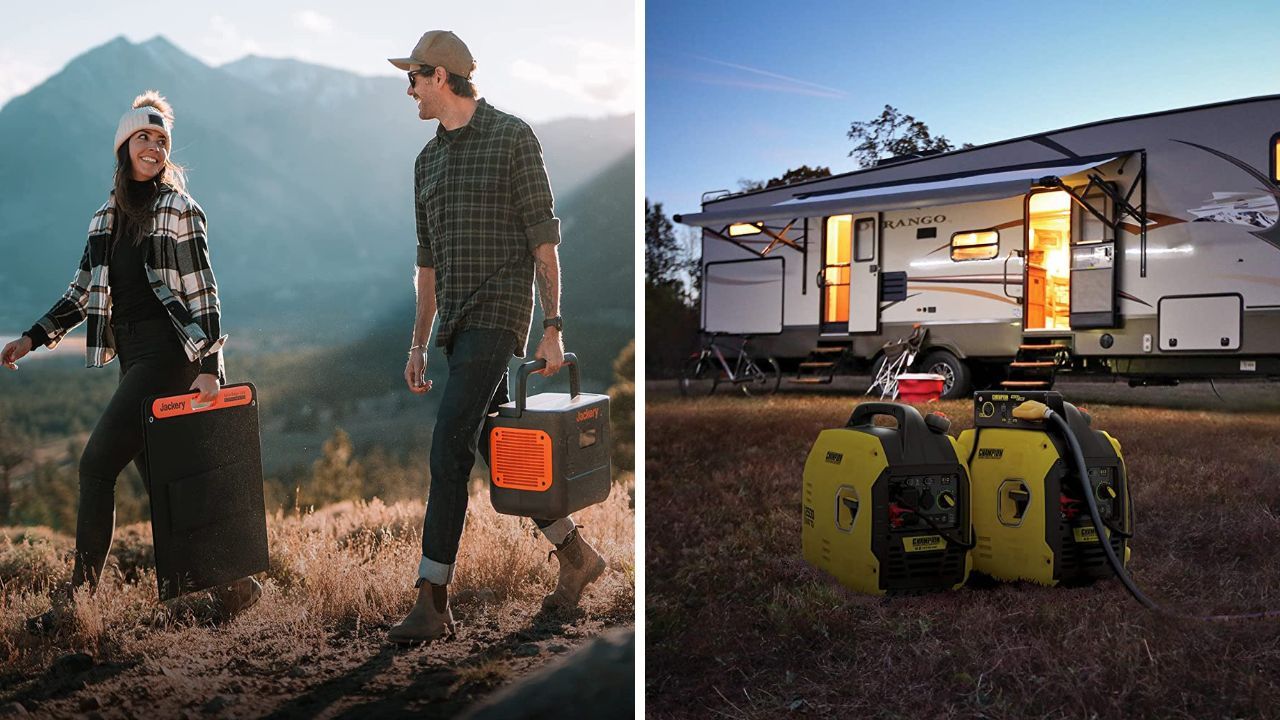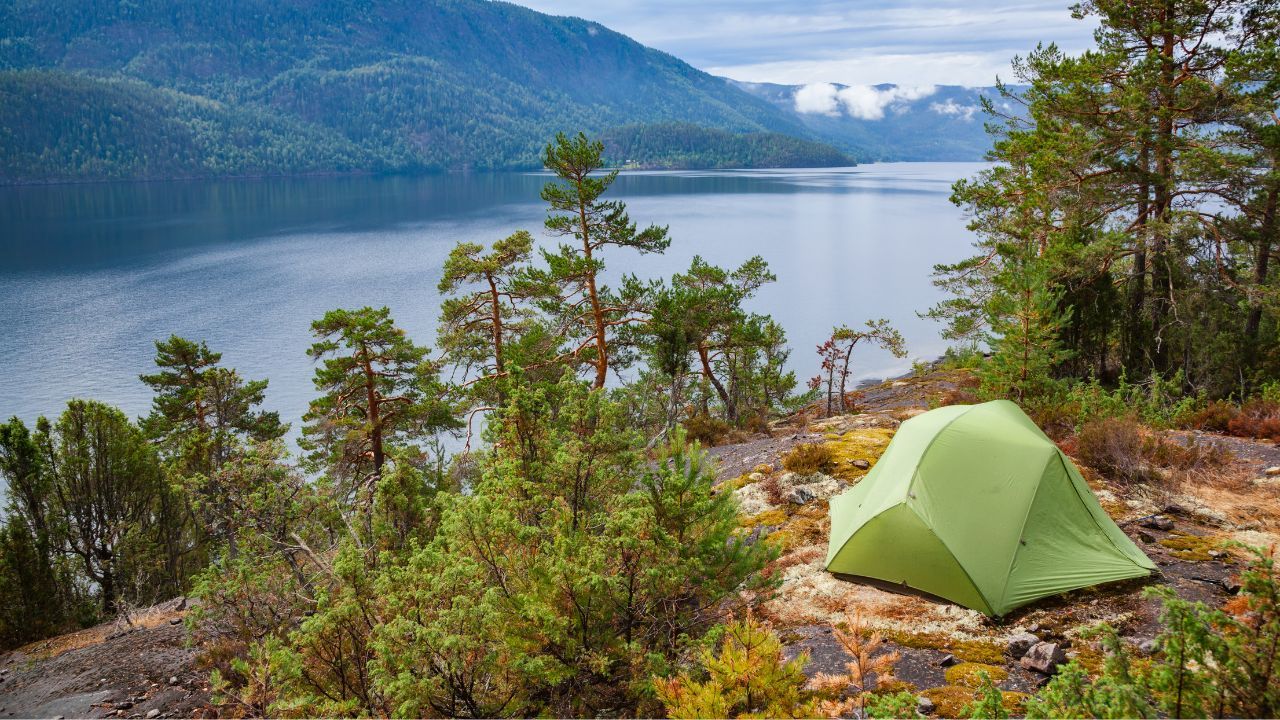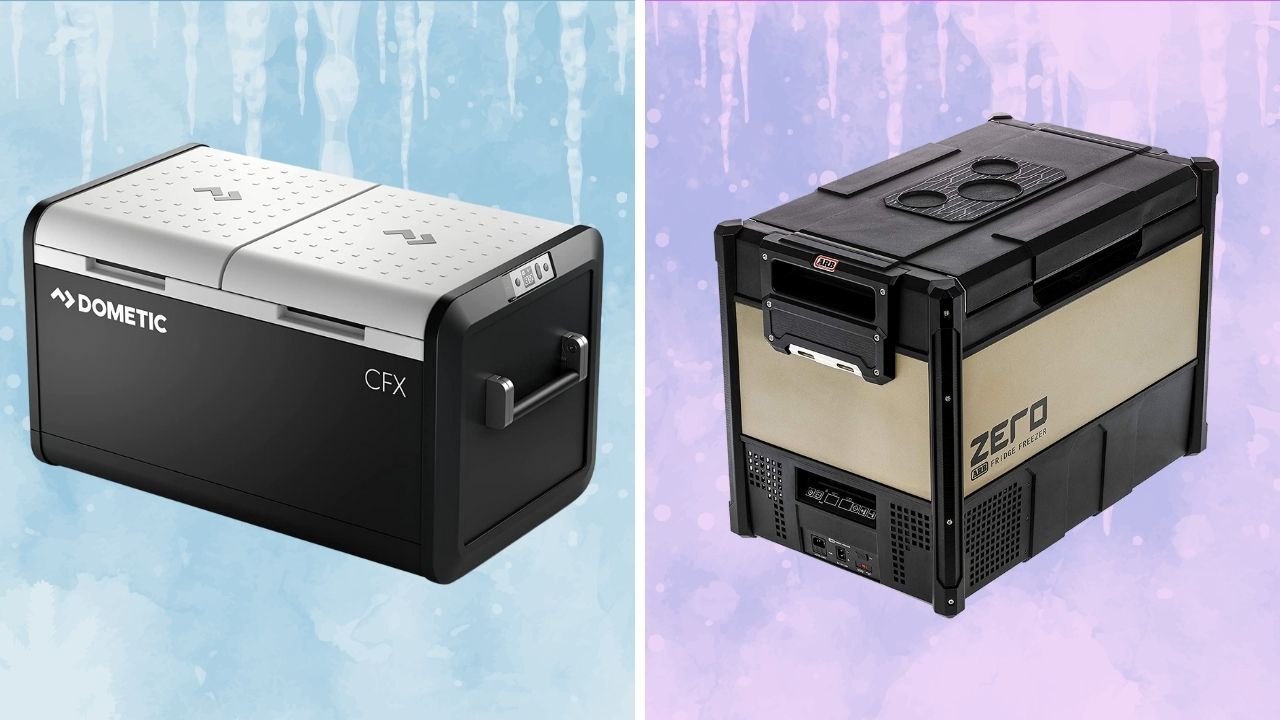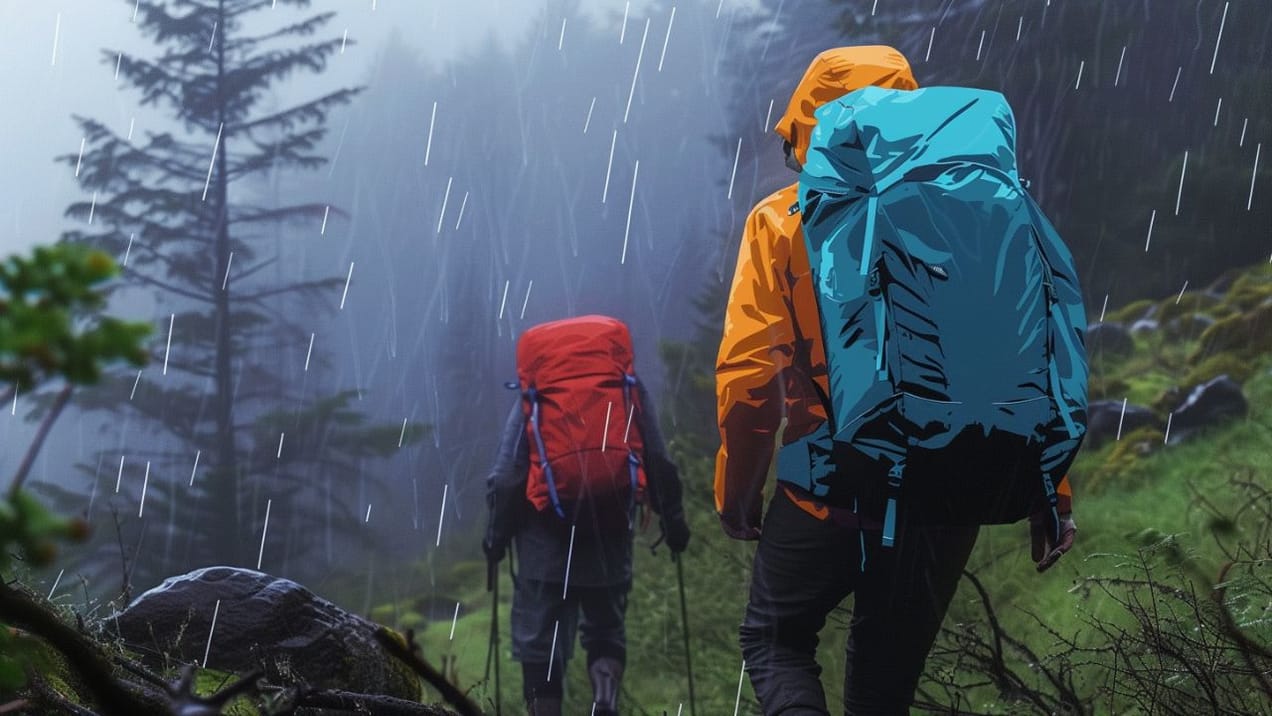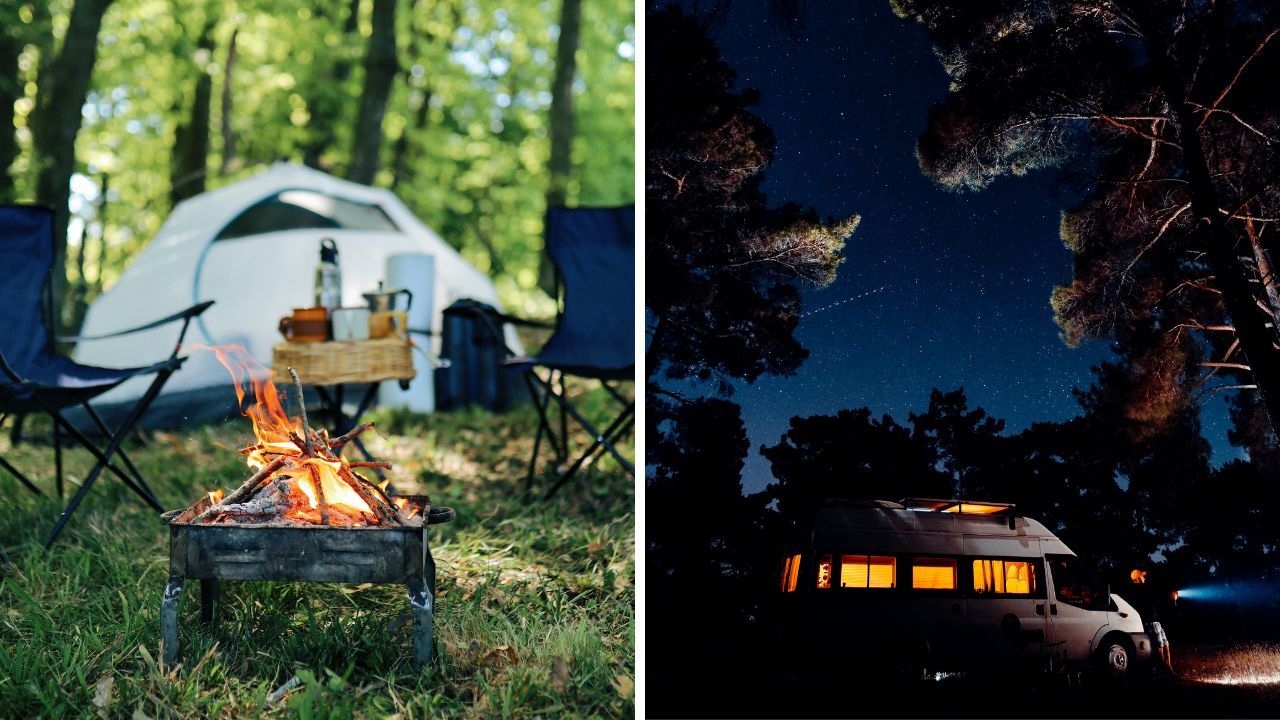
Tent Camping vs Camper | Finding Peace Outdoors
Choosing between Tent Camping vs Camper? Discover the pros, cons, and magic of each journey!
Lately, have you noticed that more and more people are diving into the world of camping?
Yup, it's back in vogue, and for some fantastic reasons.
I've done my fair share of both over my lifetime. While I do prefer tent camping more often, mostly because I enjoy the solitude it brings. I do enjoy the extra comfort of a camper, especially in more extreme weather conditions.
So, whether you're a newbie eager to pitch your first tent or someone eyeing that sleek camper van parked down the street, you're in for a treat (and a tiny bit of a debate)!
We're diving into the tent camping vs camper showdown to help you figure out which camping style will rock your boat (or should I say, tent?).
Key Takeaways
Closeness to Nature:
- Tent Camping: Direct, immersive experience in nature.
- Camper: Comfortable but slightly detached from the outdoor elements.
Costs & Investment:
- Tent Camping: Generally cheaper with minimal gear requirements.
- Camper: Higher upfront costs but a long-term travel investment.
Flexibility & Accessibility:
- Tent Camping: Versatile with access to diverse, remote locations.
- Camper: Offers convenience, especially for special needs, but may be limited to certain terrains and campsites.
Eco-Friendly Considerations:
- Tent Camping: Typically has a lower ecological footprint.
- Camper: Consumes more resources, but innovations are increasing sustainability.
Back to the Basics - Understanding Tent Camping and Camper Lifestyle
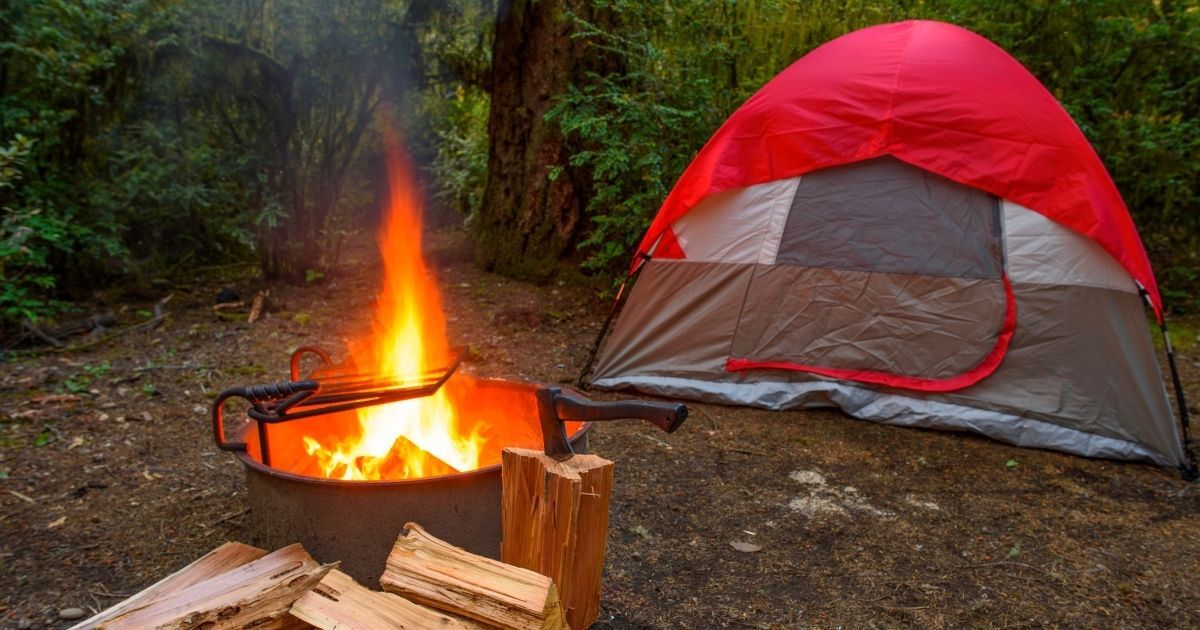
What is Tent Camping?
Tent camping is when you set up a fabric shelter (a tent) outdoors to stay in.
It's a way to enjoy nature up close, sleep under the stars, and have a simple outdoor adventure.
You usually bring along camping gear like a sleeping bag, wood for a campfire, a stove for cooking, and a cooler with food.
Different Types of Tents
- Dome Tents: Rounded, stable design with flexible poles. Good for moderate weather conditions.
- Tunnel Tents: A series of hooped poles makes for a spacious interior. Good for families but may require careful staking against winds.
- Pop-up Tents: Springs open quickly. Ideal for festivals or short trips but not very durable in heavy weather.
- Geodesic & Semi-Geodesic Tents: Uses intersecting poles for a strong, stable structure. Suitable for harsh conditions and mountainous terrain.
- Cabin Tents: Tall, straight walls like a cabin. Offers roomy interiors, great for families and extended camp stays.
- Backpacking Tents: Lightweight and compact. It's a small tent, designed for hikers and trekkers on the move.
- Bell Tents: Cone-shaped with a central pole. Spacious and often used for glamping.
- Ridge/A-Frame Tents: Traditional design, peaked in the center like an 'A'. Simple and effective but not as spacious.
- Pyramid/Teepee Tents: Central pole with a canvas draped over, staked to form a pyramid shape. Lightweight and wind-resistant.
- Tarp Tents: Minimalist shelter using a tarp. Extremely lightweight, suited for ultralight backpackers.
Defining the Tent Camping Experience
- The Charm of Simplicity: Imagine being under a blanket of stars, hearing the crickets chirp, and feeling the raw earth beneath you. Tent camping is all about that - the sheer joy of connecting with nature, without a barrier.
- Getting Ready to Rough it Out: Tent camping does need a bit of prep. From pitching your tent to making a campfire, there's a learning curve. But guess what? It's all part of the fun!
Did you know? Humans have been tent camping for over 40,000 years! That's one long-standing tradition.
What is a Camper?
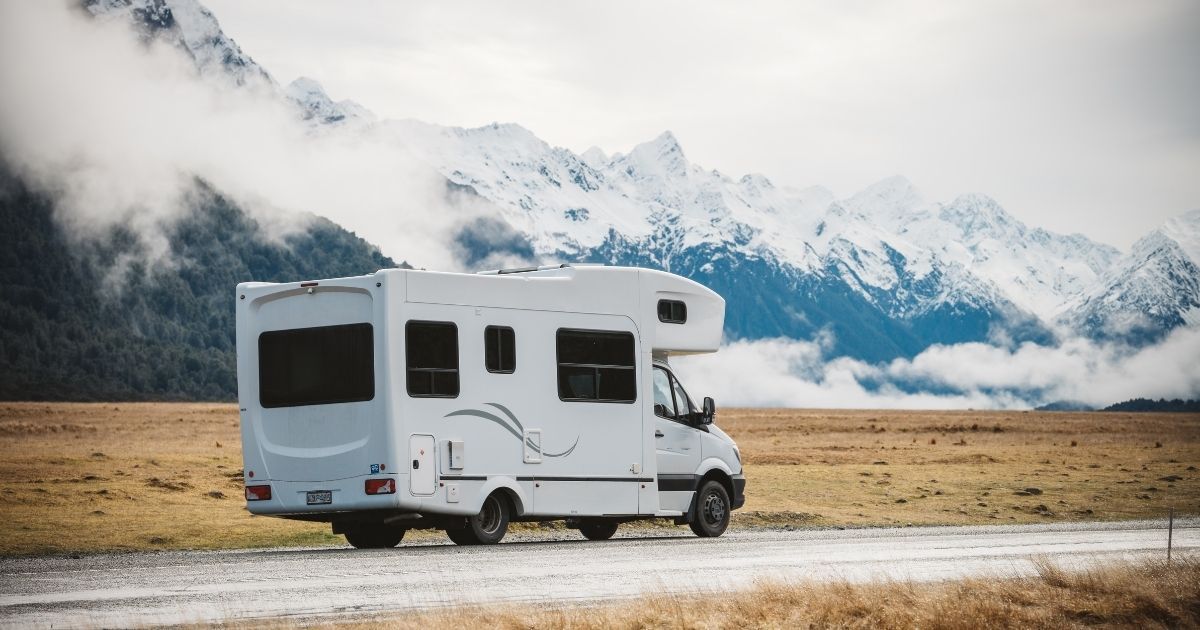
A camper is a vehicle or trailer equipped for living in.
It can range from a simple van with a bed and basic amenities to a large RV with a kitchen, bathroom, and sleeping areas.
Campers allow people to travel and stay in different places while having many comforts of home.
Different Types of Campers
- Travel Trailer: Towed behind a vehicle, come in various sizes, and typically offer kitchen, bed, and bathroom areas.
- Fifth-Wheel: Attached to trucks using a special hitch in the bed of the truck, larger living space with split levels.
- Pop-Up Campers: Compact trailers that expand upwards, providing sleeping and basic living spaces.
- Teardrop Trailers: Small, lightweight trailers shaped like a teardrop, ideal for two people with basic amenities.
- Truck Campers: Attach directly to the bed of a truck, compact living space above the truck bed.
- Class A Motorhomes: Large vehicles fully equipped with all amenities; like a mobile home on wheels.
- Class B Motorhomes (Campervans): Vans converted into campers, compact but fully functional living spaces.
- Class C Motorhomes: Mid-sized motorhomes with a cab attached, offer a balance of space and amenities.
- Toy Haulers: A mix of living space and a garage area, ideal for those who want to transport ATVs, bikes, or other "toys".
- A-Frame Campers: Foldable campers that pop up to resemble the letter 'A', compact with basic features.
Embracing Modern Comfort: The Camper Scenario
- Your Moving Home: Campers are basically your home on wheels. Fancy a midnight snack? Head to your kitchen. Tired? Your comfy bed awaits. Hot outside? Flip on the air conditioning. It's convenience redefined.
- Travel Made Easy: If the idea of traveling with your family and the comfort of home excites you, campers are the way to go. Rain or shine, you're always ready for an adventure.
Cost Implications - Analyzing Affordability and Value for Money
The Economic Appeal of Tent Camping
- Start-up Costs: Tent camping does require an initial investment - think tents, camp stoves, good sleeping bags, etc. But the good news? Most of this gear is a one-time buy, and there are options for every budget!
- Low-Cost Adventures Await: From national parks to hidden meadows, there are countless spots where you can pitch a tent without spending a dime.
Financial Considerations for the Camper
- Breaking Down the Expense: Campers can be a tad pricier, with costs ranging from buying or renting to regular maintenance. But, for many, it's an investment in luxury and convenience.
- Value for Money: With campers, you're not just investing in a vehicle. It's a lifestyle. From luxury amenities to the promise of countless road trips, it's a ticket to endless adventures.
Whether you're leaning towards tent camping or the camper lifestyle, remember, it's all about what feels right for YOU. Both have their perks and quirks. So, get ready, set, and camp on!
Eco-Conscious Explorations - Sustainability in Focus
Tent Camping: A Sustainable Choice?
- Treading Lightly: When you pitch a tent and camp out, you're taking only what you need. This minimalistic approach means a smaller carbon footprint. Simple math, right?
- Green Camping Tips: Use solar-powered camp lights. They're not just eco-friendly but super cool too!
- Pack out what you pack in. Leave no trace, folks!
- Use biodegradable soaps and avoid contaminating water sources.
- Camp at designated sites to minimize your impact.
The Environmental Impact of Camper Usage
- Power, Water, Waste: Campers might offer the luxury of home, but they also consume more resources. Electricity, water usage, and waste disposal all add up.
- Eco Innovations in Camper Design: Some of the latest camper models are using recycled materials for their interiors, reducing their ecological impact.
- Solar panels for energy.
- Efficient water filtration systems.
- Sustainable materials for interiors.
Psychological and Social Dynamics of Camping
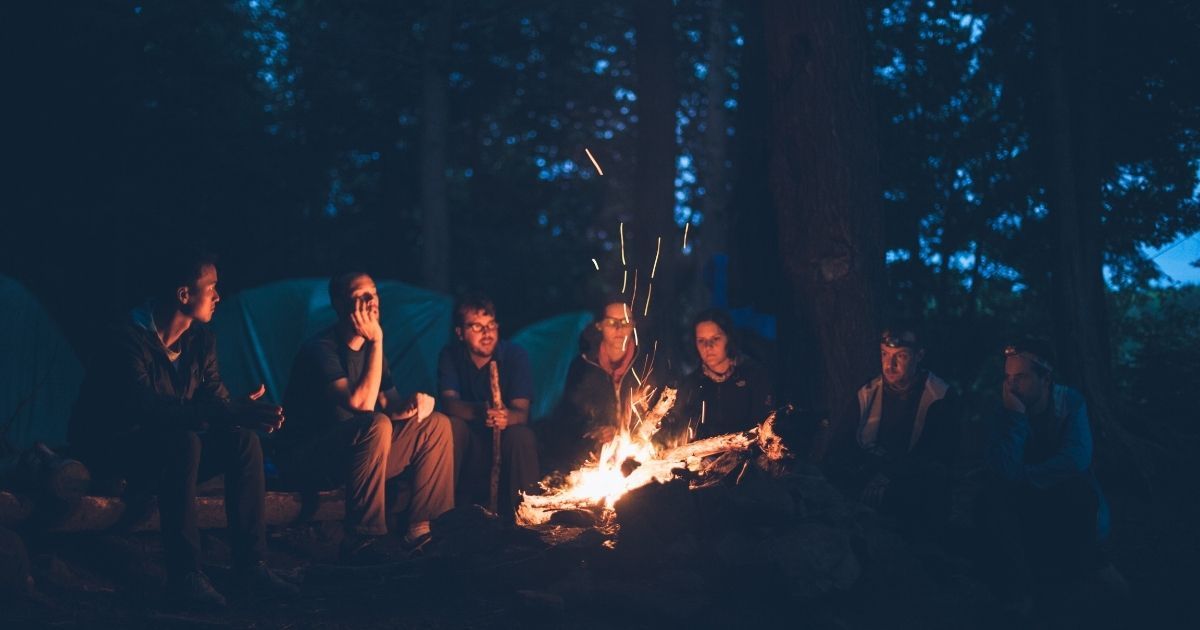
Reconnecting with Nature: Mental Health Benefits of Tent Camping
- Solitude's Silent Magic: Ever felt the world quiet down as you sat by a campfire? That's the magic of solitude in nature. It calms the mind and rejuvenates the soul.
- Tackling Challenges Head-On: When tent camping, you're problem-solving constantly – from setting up your tent to ensuring you stay warm. These challenges help build resilience.
Social Perks and Comforts of Traveling in a Camper
- The Camper Community: Think of RV camping parks as neighborhoods on wheels. Shared BBQs, storytelling sessions, and new friendships - it's socializing redefined.
- Comfort = Peace of Mind: There's something reassuring about having a secure, cozy space in unfamiliar settings. It reduces anxiety and lets you enjoy the journey even more.
Whether you're a tent enthusiast or a camper lover, it's all about the experience. Both styles of camping offer unique benefits, challenges, and joys. So, put on your explorer hat and set out on the journey that suits YOU best! Happy camping!
Accessibility and Family Needs
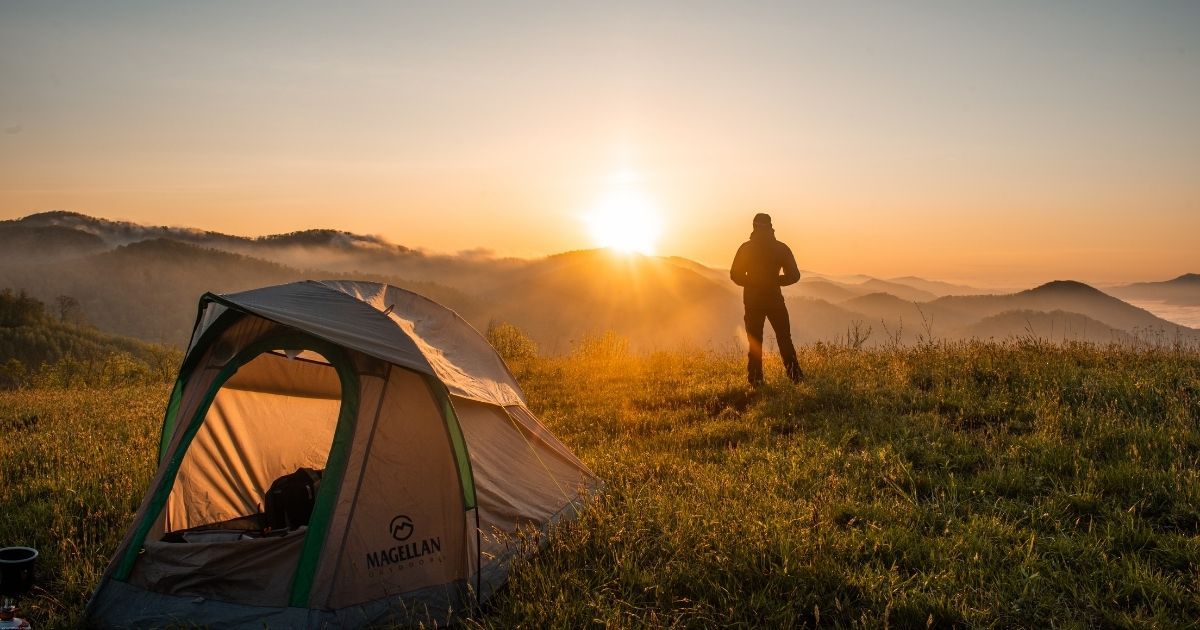
The Versatility of Tent Camping
- Go Anywhere, Anytime: With a tent, the world is quite literally your oyster. Forests, mountains, beaches – you pick the view!
- Raising Little Adventurers: Camping offers practical lessons for kiddos – like how to tie knots, build a fire, read a compass. It's skill-building disguised as fun.
Meeting Special Needs with a Camper
- Inclusive Travel: Modern campers are designed with everyone in mind. Features for the elderly, babies, or those with disabilities make travel a joy.
- Furry Family Members: Bringing pets? Campers mean your furry friends get their comfy space, and you don't stress about their safety.
Looking to the Future - Emerging Trends and Technologies
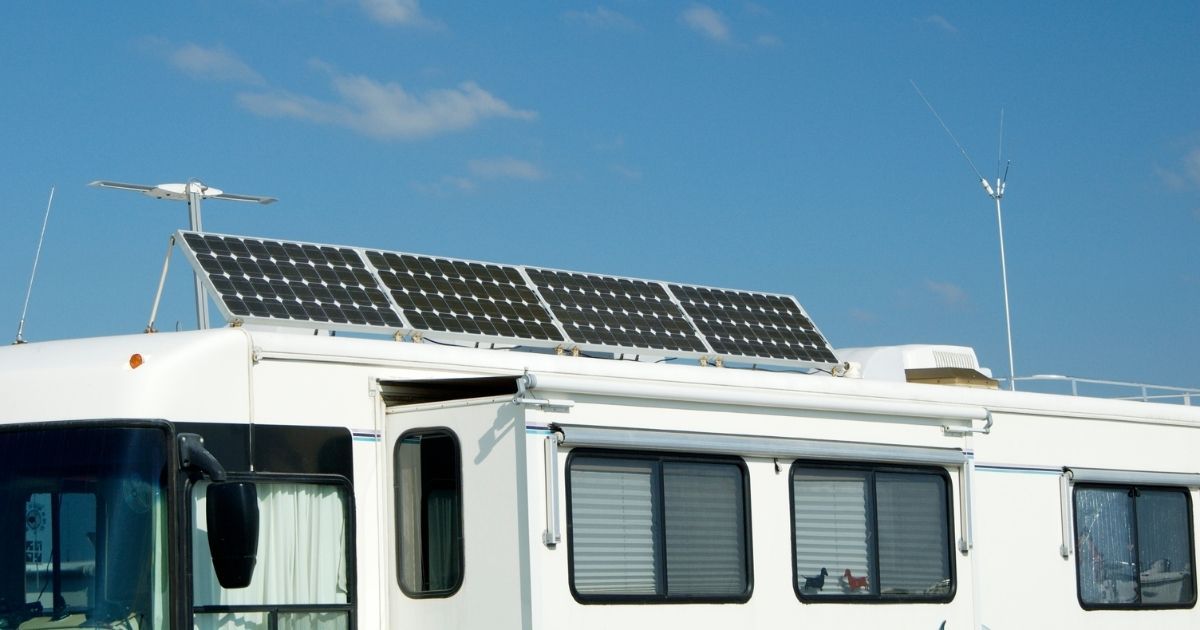
Innovations Enhancing Tent Camping
- Next-Gen Gear: Materials lighter than a feather but tough as nails? That's the future of camping gear.
- Tech to the Rescue: From navigation apps to solar-powered chargers, technology is enhancing the tent camping experience.
The Evolution of Campers
- Smart Campers: Voice-controlled lights, automated waste systems, and more – it's like living in the future, on wheels!
- Made Just for You: Customized interiors, personalized storage spaces, and more. Modern campers cater to YOUR needs.
Frequently Asked Questions
Can I go winter camping in a tent?
Yes, you can camp in a tent during winter. Just make sure to use a 4-season tent and the right gear!
Are campers hard to drive?
Campers can be trickier to drive than regular cars. It's mainly due to their size and weight. With practice, though, many people get the hang of it! Many rental places even offer short driving courses.
Is it better to camp in a tent or camper?
Both tent and camper camping have perks. Tents bring you closer to nature, while campers offer more comfort. Choose based on your camping style and comfort needs!
Why tent camping is better?
Tent camping lets you connect closely with nature. It's lightweight and budget-friendly. Plus, you can camp in more remote spots!
Is tent camping still popular?
Yes, tent camping is still a favorite! Many folks love the natural connection it offers. Plus, it's a fun and affordable way to adventure!
What are the cons of camping in a camper?
Campers can be pricey to buy and maintain. They're bulkier to drive and park. Some remote spots might not be accessible with them.
Final Thoughts
Whew! That was a lot to take in, right?
Whether you're into raw adventures with tent camping or love the luxury of modern campers, it's all about what resonates with YOU.
Remember, it's your journey, your story. So, what's it going to be?
Fancy sharing your epic camping trip tales? Drop them in the comments. And if you found this guide helpful, share it with your buddies pondering their next adventure.
Before You Go...
